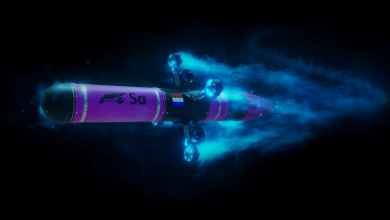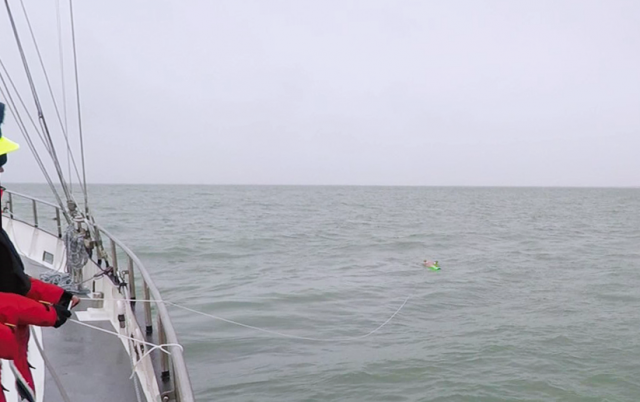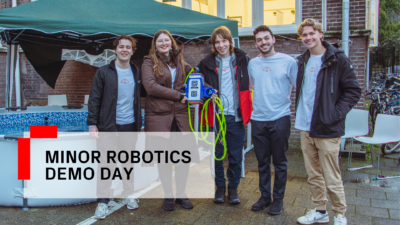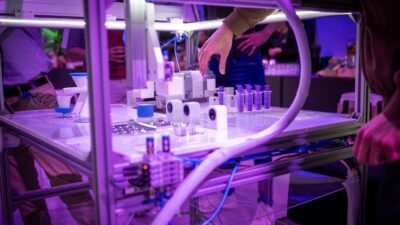LOBSTER is a robotics research project which gives TU Delft students the chance to “get their feet wet” with deep sea exploration – a field which is usually prohibitively expensive.
The team of fifteen is currently working on their third prototype – LOBSTER Scout. This deep sea robot has been designed as a modular system, enabling easy troubleshooting and maintenance – an essential feature if it is to survive the high pressure, hostile environment of the deep blue. Having recently teamed up with a commercial partner, last month the student team set sail in the Wadden Sea to put the sea-worthiness of LOBSTER Scout to the test.
“Mission accomplished: the modules stayed reassuringly dry” – LOBSTER student, Danny Looman
They launched a dummy robot in order to investigate the user experience and test out the narrow interconnections which join and seal the modular system. LOBSTER student, Danny Looman, reports that it was mission accomplished: the modules stayed reassuringly dry.
Back home in RoboValley, deep sea exploration continues – albeit in a simulated environment. The student team has created a pressure chamber filled with oil which allows them to test out how LOBSTER’s electronic components behave in the kind of high pressure environment found at the bottom of the ocean. LOBSTER’s philosophy is to design for behaviour changes rather than create an ambient environment within their robot. So far the team has managed to test components to a pressure of 550 bar but they are now setting the bar (quite literally) higher and are aiming to test at a pressure of 600 bars.

Are you interested in getting involved? → Get in touch with team LOBSTER



